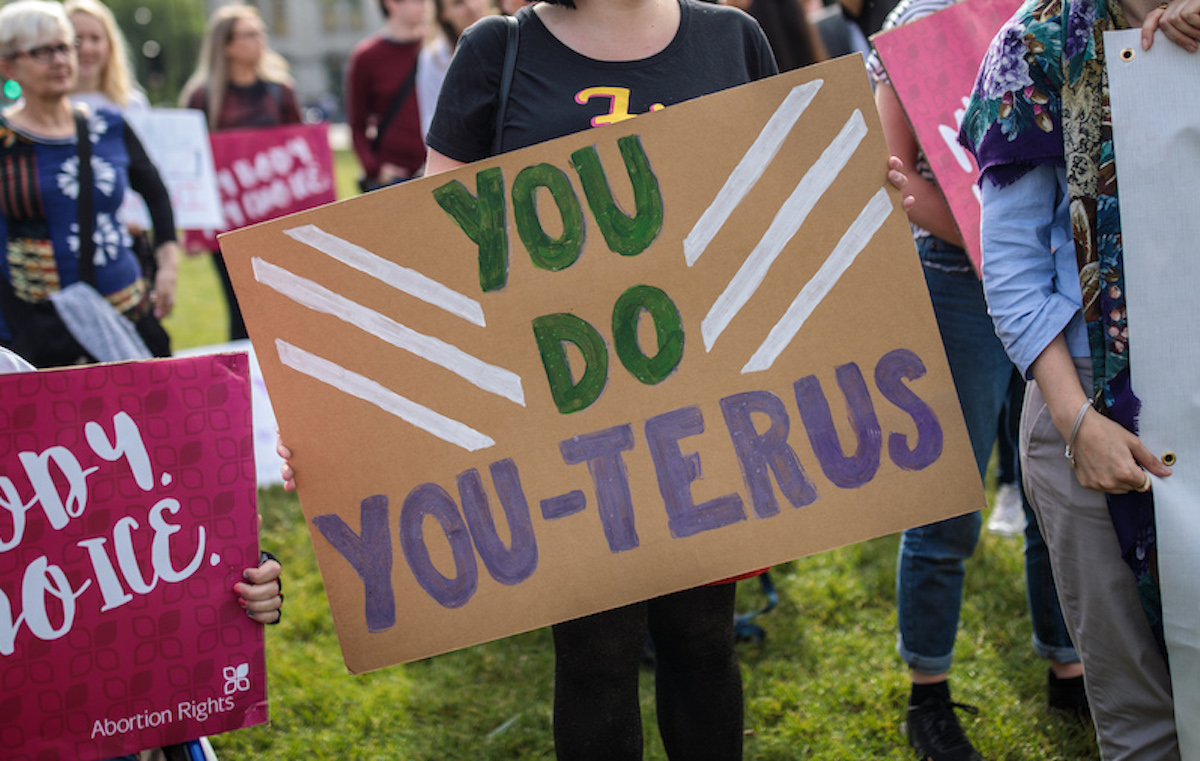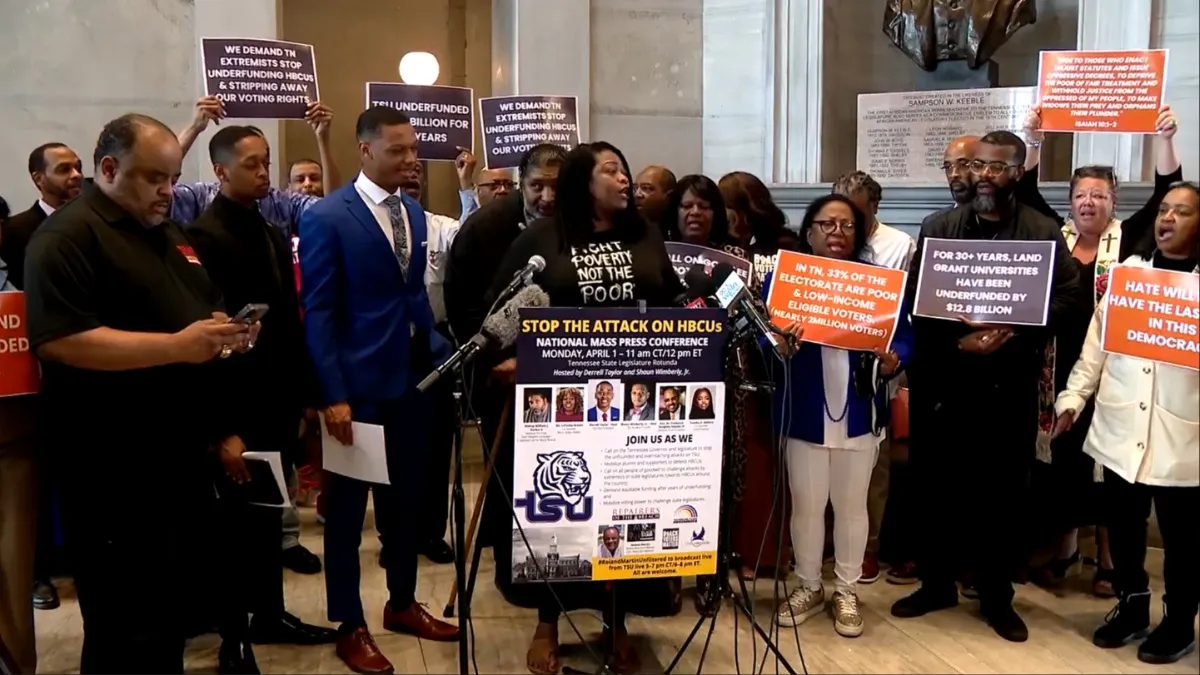Welcome to The Week in Reproductive Justice, a weekly recap of all news related to the hot-button issue of what lawmakers are allowing women to do with their bodies!
The last several months have seen no shortage of oppressive, dangerous anti-abortion legislation, and even some court decisions. A new report about allegations of sexual assault against Supreme Court Justice Brett Kavanaugh, who has sided against abortion rights and women’s bodily autonomy throughout his career, highlighted what precarious and frustrating times we’re living through.
But there has been a seed of good news for some time now, in the form of California’s SB 24, a bill that would mandate and provide for access to medication abortion in public state universities’ campus health centers, which, as of this week, has headed to Governor Gavin Newsom’s desk.
SB 24 is a product of years of student-led activism that arose from a too-long unacknowledged need and demand for abortion access on campus. Nearly half of California counties lack an abortion provider, and per research by the University of California, San Francisco, hundreds of UC and CSU students leave their campuses to seek medication abortion each month.
Doing so often requires missing classes and paid work, traveling great distances, and incurring high costs of both travel and abortion care, depending on their health insurance situations. The ability to access abortion care can be a decisive factor in whether students are able to stay in school, especially as most universities fail to offer sufficient childcare resources.
Despite passing the Assembly and Senate, SB 24 has been made needlessly controversial, as all commonsense bills and initiatives that support abortion access so often are, but to dispel with just a few myths, SB 24 wouldn’t be funded by California taxpayers’ taxes (as if taxes paying for basic health care like medication abortion is somehow a bad thing), nor is medication abortion dangerous or risky. It results in serious health complications fewer than 0.2 percent of the time, which, for some context, is significantly safer than nearly all other everyday, far less regulated and stigmatized health services.
Though Gavin Newsom has previously expressed support for SB 24, the bill still awaits his signature. If the bill is successfully enacted, public state university health centers would be required to carry medication abortion starting January 1, 2023.
SB 24, which was previously SB 320 before passing out of the state legislature and being vetoed by former Gov. Jerry Brown in 2018, is the first of its kind in the nation and already inspiring state lawmakers in other states like Massachusetts. It would be a game-changer in supporting the needs of low-income, disproportionately students of color with varying health insurance situations.
Also importantly, the bill is a reminder of how much work there is to be done—not just in being on the defensive and fighting back against proposed abortion bans and restrictions, but also in being proactive and bold, and fighting to expand abortion rights and access.
Maine laws expanding abortion access go into effect
In yet another example of the bold work that could be done to not just protect but expand abortion access on the state level, this week, Maine enacted two laws that will expand eligibility for who can provide abortions and expand when insurance must cover abortion care.
The first law will overturn a ban on qualified nurse practitioners and other advanced practice clinicians providing abortion care, originally put in place to further stigmatize abortion and misrepresent it as dangerous and complicated, as well as to limit access to abortion by limiting the range of providers. The second law will require all insurance plans that cover prenatal care to also include coverage of abortion, in an important move that will similarly help to address stigma that separates abortion from other health care while also increasing access.
According to Huffington Post, this week, Maine becomes only the second state with a law allowing non-doctors to perform abortions. California is the other state, while Idaho, Virginia, Wisconsin, and Arizona have laws that explicitly ban this.
Federal judge blocks Missouri’s later abortion ban—again
And in some more good news, this week, a federal judge upheld a previous ruling blocking Missouri’s ban on later abortion through the dilation and evacuation procedure. Dilation and evacuation is the safest method of later abortion, a safe, standard, and highly necessary procedure that’s drawn needless, dangerous controversy in the last several months.
Later abortion often arises in response to extreme fetal anomalies or other extreme conditions experienced by the pregnant person, or can also be the result of extensive restrictions obstructing access to abortion earlier in the pregnancy. In either case, abortion care through the point of fetal viability—if a fetus ever becomes viable—is a protected directly by the Roe v. Wade supreme court decision, which all laws restricting access to later abortion are violating.
Last month, a federal judge also placed an injunction on a law that would have banned abortion at eight weeks of pregnancy—before many people can even recognize they’re pregnant. All of these laws—banning later abortion, banning early abortion, and so on and so forth—are restrictive, dangerous, and certain to increase rates of maternal and infant death.
They’re also not surprising in Missouri, where state lawmakers have pushed legislation resulting in only abortion clinic remaining in the state, and some of the poorest maternal health outcomes in the nation and industrialized world. In other words, this latest ruling may be a victory for protecting abortion access and bodily autonomy, but there’s certainly more work to be done.
Tune in next week to see what lawmakers will try next in their never-ending mission to derail reproductive justice!
(image: Jack Taylor/Getty Images)
Kylie Cheung writes about feminism and politics, with a focus on reproductive justice. Follow her on Twitter @kylietcheung, or learn more about her writing at www.kyliecheung.tumblr.com.
Want more stories like this? Become a subscriber and support the site!
—The Mary Sue has a strict comment policy that forbids, but is not limited to, personal insults toward anyone, hate speech, and trolling.—








